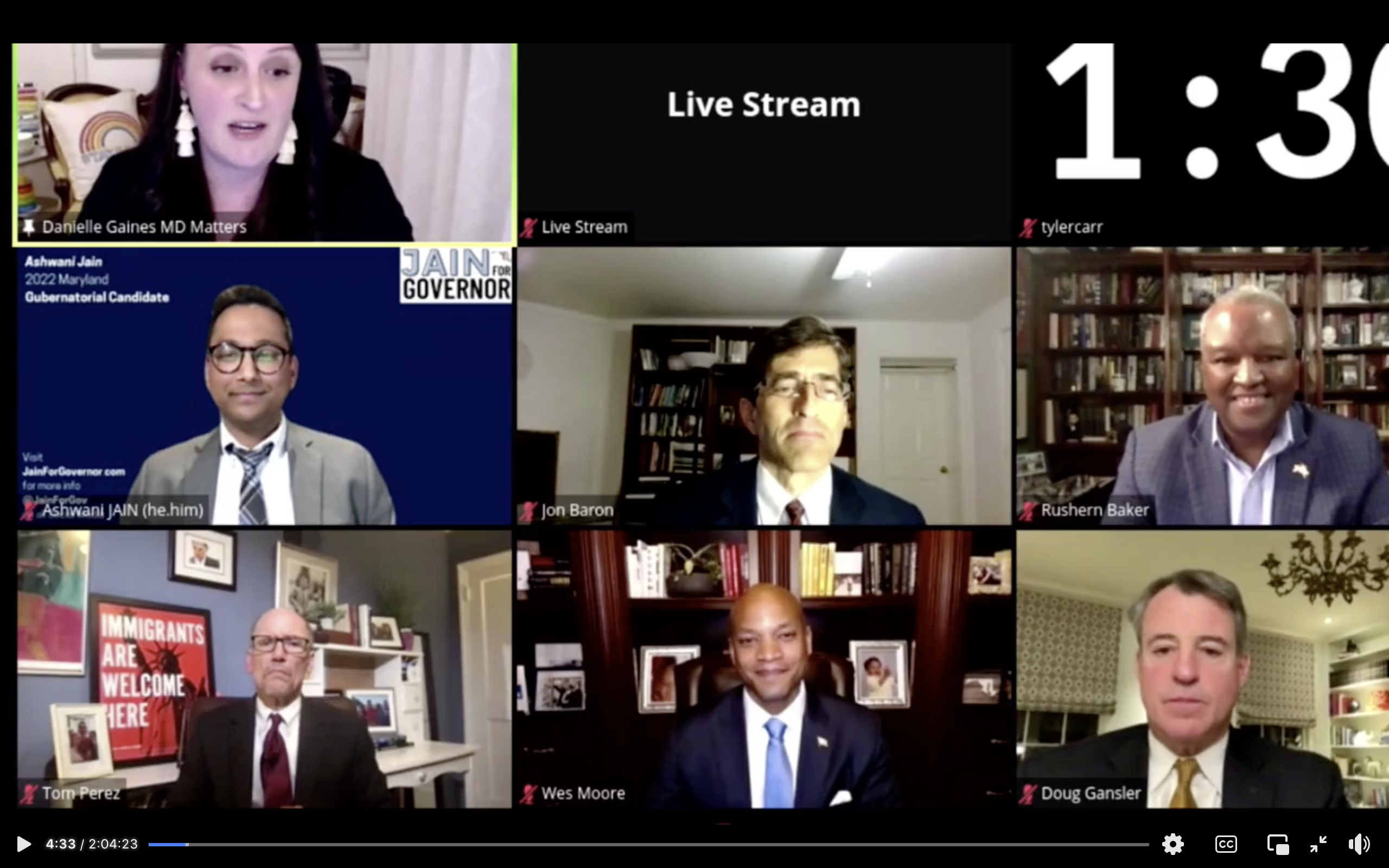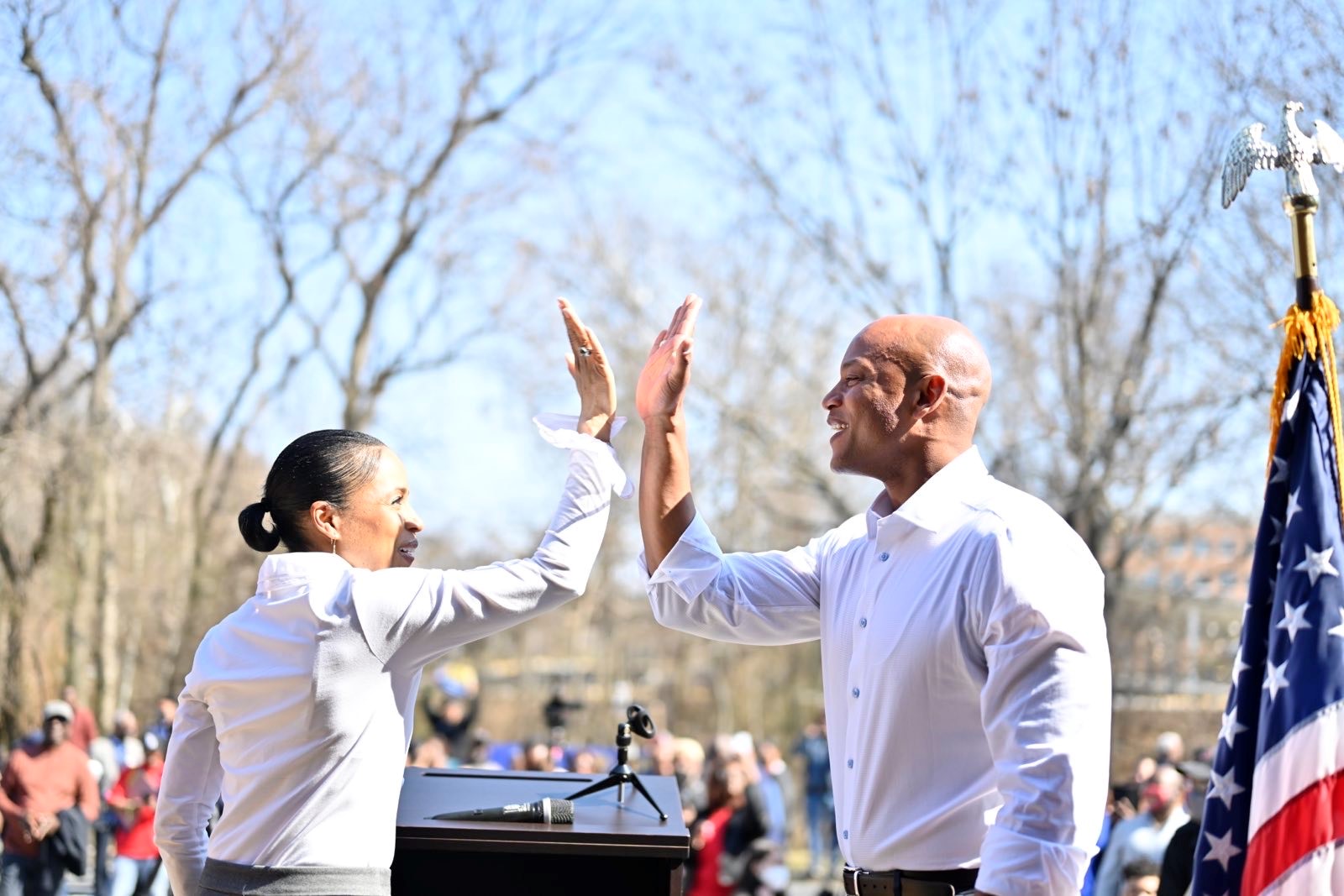
Seven Democratic candidates for governor — Rushern L. Baker III, Jon Baron, Doug Gansler, Ashwani Jain, John King, Wes Moore and Tom Perez — laid out their education policies during a virtual gubernatorial forum on Wednesday evening, uniting around fully funding the Blueprint for Maryland’s Future, enforcing COVID protections in schools and supporting early child care for all.
Maryland Matters Editor Danielle E. Gaines asked candidates a wide range of questions about how they would bolster education in Maryland at the forum hosted by the Maryland Democratic Party.
Funding the Blueprint for Maryland’s Future
Candidates expressed their support in ensuring that the Blueprint for Maryland’s Future — a decade-long education reform plan — was fully funded.
Gansler stressed that his experience as state attorney general and existing relationships with the General Assembly has prepared him for overseeing a “gargantuan project” like the Blueprint. But “actually having a Democrat win…the general election is even more important for the future of Kirwan,” he said.
King said the next governor will have to tackle tax inequities to guarantee that there is enough revenue to fund the Blueprint and to further build on it.
Perez said he would start by fully funding the Accountability and Implementation Board, a panel charged with overseeing the implementation of the Blueprint. The AIB began meeting in the fall but without a budget, making it hard for them to start work. Perez rebuked Gov. Lawrence J. Hogan Jr. (R) for not using his full authority to start funding the AIB.
Baron said he thinks it is not only important to have enough funding, but to use an evidence-based approach to expand on programs that have worked “in the real world.” Some of the tested strategies he endorsed were tutoring first- and second-graders and setting up “career academies” in high poverty high schools.
Learning during COVID
Several candidates — Baron, Gansler, Jain, King — said that they would support vaccine mandates in schools during the pandemic.
Baron highlighted that COVID-19 vaccinations and boosters have proven to prevent serious illness and death and promised to provide vaccine clinics in every school in the state as governor.
Jain mentioned that some voters he talked with are concerned about vaccine mandates violating individual freedom. But “when personal choices and freedoms impact public safety, I believe that the government and the governor need to impose mandates,” he said.
Moore said masking requirements in schools will be key in ensuring safety in schools and also touched on prioritizing longer term solutions such as investing in modern school facilities so that students can learn with proper ventilation systems and stay safe.
Perez said he would provide COVID hazard pay to educators. “We can do this without breaking the bank,” he said.
Digital divide
Most candidates agreed that the pandemic highlighted the need for full broadband access across the state, not only for students in virtual classrooms but also to get access to telehealth and participate in the present-day economy.
Baker said that he thought the pandemic offered an opportunity to find and immediately address those areas across the state that lack internet access, partly by using federal infrastructure funding.
King said he thinks of the internet as a utility, likening it to how essential electricity became in the 1940s. He supported professional development for teachers around virtual learning.
Gansler echoed that the internet should be seen as a public utility and that the government should make telecommunication companies “pay their fair share.” Although he supported broadband access, Gansler said students also need to be moved away from online learning.
Schools can provide each household with a device, but the number of students living in that household also matters, Moore said. “Oftentimes we are asking questions like — well does this family have a device inside of their home for the child?” he said. “But if that family has four children, what relevance is that question?” Addressing broadband access ties in with addressing “the plague of poverty,” he said.
Comptroller Peter V.R. Franchot (D) did not appear; his campaign held a fundraiser in Baltimore County.
Watch the full forum here.
Editor’s Note: This story was updated to correct the location of a fundraiser hosted by Comptroller Peter V.R. Franchot.




 Creative Commons Attribution
Creative Commons Attribution